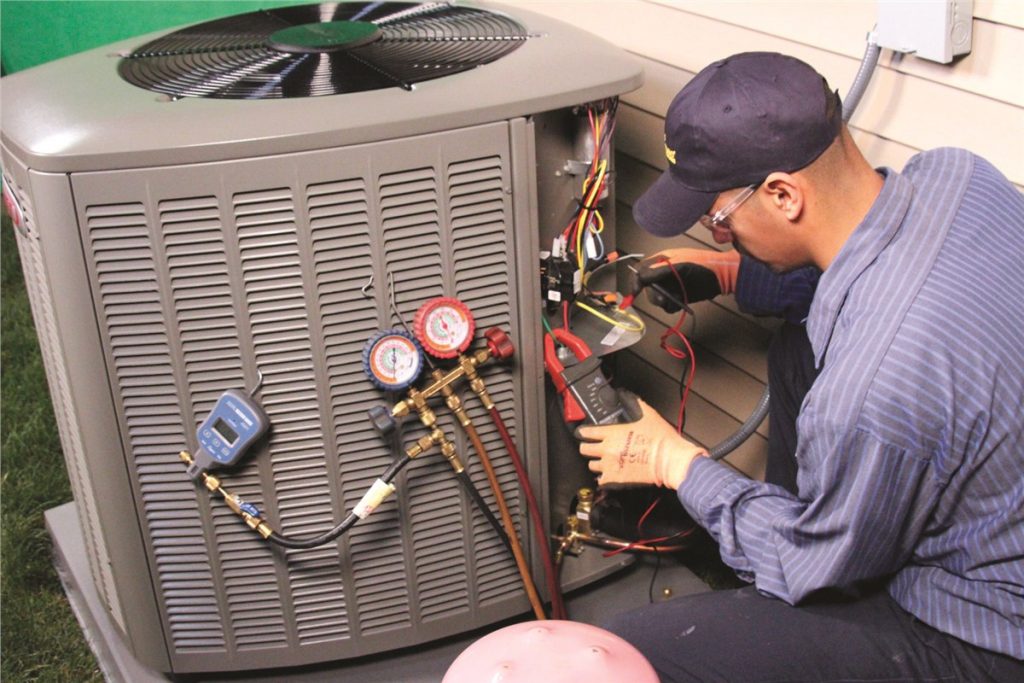During the summer, air conditioning represents the majority of electricity costs for residences and commercial buildings. Building owners should anticipate high electricity bills during the hottest months with expensive electricity. However, modern technologies significantly lower the price of cooling. Since no one is using the air conditioning throughout the winter, it’s an excellent time to inspect and upgrade it.
Utility companies as well as homes and businesses profit from efficient air conditioning. The enormous number of air conditioners operating at maximum capacity throughout the summer puts a strain on the electrical grid. To keep up with demand, utility providers must continuously modernize their grids; otherwise, blackouts are likely to occur when electricity consumption peaks.
Upgrade Your Air Conditioner To Start Lowering Your Summer Energy Costs

Although there are many different types of air conditioning systems, direct expansion (DX) rooftop units or chiller plants are used in many commercial buildings. The primary distinction between the two is that chillers cool the air indirectly by giving cold water to fan coil units, whereas DX units directly cool the air. The operating costs of chiller plants are often lower than those of rooftop units because water transports heat more efficiently than air (assuming the same capacity). However, summertime sees higher demand for both systems.
Winter AC System Maintenance And Upgrades
The winter months are ideal for air conditioning projects for a variety of factors. First off, the building doesn’t require space cooling, and the installation can be inspected and changed without putting residents through any discomfort. Additionally, there is less demand for tools and components, and because there are no urgent repairs, AC specialists have more time available.

On the other side, if you put off an air conditioning job until spring or the beginning of the summer, there will be more building owners who require last-minute inspections or repairs. Due to the increased amount of ongoing air conditioning maintenance, the supply of equipment and parts may also be reduced.
For commercial buildings, efficient air conditioning offers two different forms of savings. Building owners benefit from energy savings similar to when they improve their home’s air conditioning, but keep in mind that commercial buildings are also susceptible to demand charges. Even at full load, a more energy-efficient AC system will consume less kilowatts, which can be deducted from the demand fee.
Many energy providers take into account the biggest demand peak for the previous 12 months, not only the billing period. Due to this, even in the months when space conditioning is not necessary, the summer’s peak demand has an impact on electricity prices throughout the entire year.
Knowing How Effective Air Conditioning Systems Are

There are numerous components in a space cooling system, such as air handlers and chilled water pumps. The air conditioner typically has the largest consumption, though. Efficiency ratings vary based on the type of unit, but the fundamental principle always holds true: reduced power costs are a result of higher efficiency values.
- The Integrated Part Load Value is used by chillers (IPLV). Instead of describing efficiency under a single circumstance, this figure describes efficiency throughout a range of typical working situations for the chiller.
- Kilowatts per ton (kW/ton), which measures a whole chiller plant’s efficiency, is a common unit of measurement.
- The Integrated Energy Efficiency Ratio (IEER), which is comparable to the IPLV and reflects a variety of operating situations, is used by packaged rooftop units.
- The Seasonal Energy Efficiency Ratio is used by mini-split air conditioners (SEER). In cooling mode, air-source heat pumps also employ this metric.
- Since geothermal heat pumps, unlike other cooling systems, lack a specific efficiency statistic, they instead employ the Coefficient of Performance (COP).
Whatever the efficiency indicator, a greater score indicates less electricity use. These measurements can be compared to a car’s fuel economy, except that in this case the input is electricity rather than fuel, and the output is cooling capacity rather than distance covered. Only chiller plant efficiency in kW/ton is an exception, where a lower value denotes a lower consumption.
Since you don’t have to redo the entire installation, air conditioning upgrades are easier when you switch to a more efficient unit of the same type. It could be advantageous in some circumstances to switch to a different cooling system. For instance, window-type and packaged terminal air conditioners (PTAC) are inefficient, but more recent systems allow for savings of over 70%.
Conclusion
Wintertime offers a chance to inspect, maintain, and modernize air conditioning systems with little inconvenience. Since employees don’t rely on space cooling to stay comfortable, businesses may continue operating properly. On the other hand, a single hot summer day without air conditioning can be extremely disruptive.






GIPHY App Key not set. Please check settings